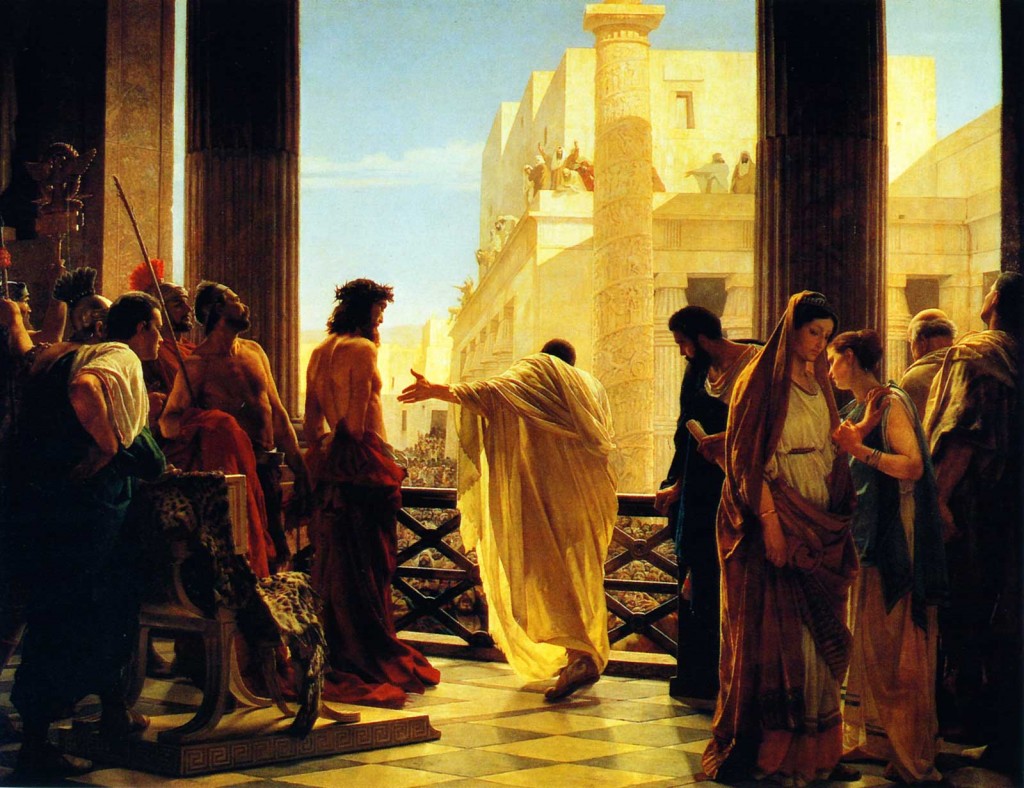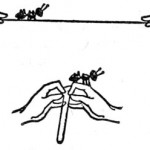In 2014, I’m reading and blogging through Pope Francis/Cardinal Bergoglio’s Open Mind, Faithful Heart: Reflections on Following Jesus. Every Monday, I’ll be writing about the next meditation in the book, so you’re welcome to peruse them all and/or read along.
In this week’s reading, Pope Francis points out that Christ was stripped of more than his clothes when he was executed on the cross:
Jesus does not die in Jerusalem, nor is he stoned to death. He dies as one accursed, “hung on a tree” outside the walls of Jerusalem (cf. Deut 21:22-23). The punishment imposed by Jewish law for a false prophet and a blasphemer is stoning, but Jesus does not die as a prophet. Rather, he is put to death as a conspirator, a zealot, a guerrilla fighter against Roman power. As a contemporary theologian puts it, Jesus’ enemies robbed him of his rightful death. Not only did they take away his life with a “legal” murder, but they denied him the meaning that he personally gave to his life and his death. Jesus’s total divestment includes the manner of his death on the cross: he did not even have the final satisfaction of dying in a way that bore witness to the true meaning of his life.
Pope Francis goes on to warn his readers that they “must take into account the likelihood of being judged ‘criminals’ as [Christ] was, of being considered ‘antagonistic’ to the common good.” He’s not telling his audience of priests that they should seek out conflict with worldly powers, but that something has gone a bit wrong if it never comes to them.
I’m reminded, reading this week’s chapter, of an aphorism from Umesh Vazirani, “If you’ve never missed a flight, you’re spending too much time in airports.”
The religious version of this “Umeshism” might be, “If all your leaders are recognized as religious leaders, you’ve accepted too narrow a sphere for religion.”
Christ is executed as a criminal/revolutionary/conspirator because, as Richard Beck writes “Herod didn’t make a mistake.” Christianity doesn’t go out seeking conventional, worldly power, but the calling Christ brings doesn’t have tidy, limited consequences that can be confined to an hour on Sunday mornings or a home oratory.
Christianity [like any philosophy worth its salt] can and should spill over into neutral/secular life, in both the political and personal spheres. When it prompts questions of “Well, what does that have to do with your religion?” we should be ready with answers.
P.S. Today, I’m sending out the first of my once-a-month behind the scenes looks at my book, Arriving at Amen: Seven Catholic Prayers that Even I Can Offer.
So, sign up for the emails before 2:30p today, to find out what was the funniest question I got from my copy-editor, and how quickly she identified one of my foibles.













